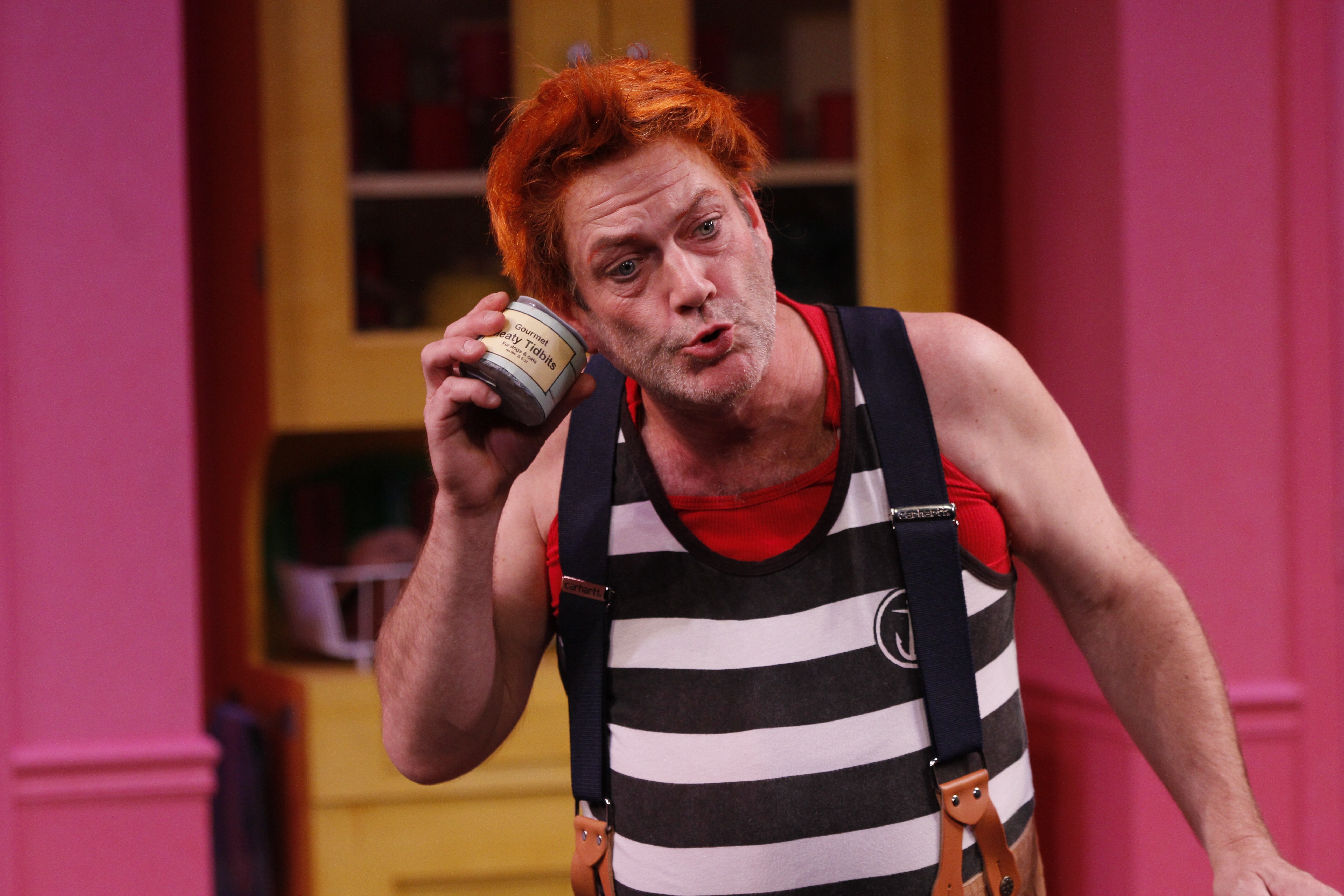PConstellation Half Remembered
Jack Block Park, 2130 Harbor Ave. S.W., umamiperformance.wordpress.com. Free. 3 p.m. Sat., July 20. Parallel Public Works, 424 S.W. 153rd St., Burien. Free. 8 p.m. Fri., July 26–Sat., July 27.
Anyone can dance with another person, but it’s a rare artist who can make a door jamb into a sympathetic partner. Aaron Swartzman and Aiko Kinoshita, in their identity as Umami, have been developing their new piece through performances in all kinds of spaces around town, from traditional theaters to a converted photo studio, but their best work seems to happen in the most unconventional places. Recently dancing in composer Amy Denio’s bungalow, Swartzman moved through a series of duets with a door jamb, a coffee table, and the underside of an upright piano. He and Kinoshita, plus a rotating cast of colleagues, are all skilled in contact improvisation, in which partners shift their support continually, so perhaps it’s not so surprising that he has a way with furniture.
The work’s raw material is drawn from the performers’ memories, but the vignettes often stimulate our own—as when a spirited race up and down a staircase evokes sibling relationships. And when we see a performer carrying a plate of fruit fall to the ground in a well-practiced stumble, we wince at our own remembered gaffes.
As Constellation Half Remembered evolves in different settings, we recognize movement themes and sequences from show to show. Each new venue reveals different aspects of the material. In the open space of the Raisbeck Performance Hall, we could follow big traffic patterns of the choreography; in Denio’s house, the same sequence was distributed among several rooms. A gecko-eyed observer could simultaneously see a twisty solo in the hallway and a close-but-not-touching duet in the living room. The rest of us watched as if it were a tennis match, shifting our gaze back and forth. As Umami’s cast changes around the two principals, following the multiple shows becomes like watching a serial drama.
Swartzman and Kinoshita are riding a current trend: performance-art pieces that are continually edited with each new staging. Even the most polished theatrical production has always included an element of chance (forgotten lines, missed cues, dropped props, etc.), but here the balance between rehearsal and improvisation is much more fluid. And as Umami approaches the last two weekends for Constellation, the ensemble is still tweaking and revising, digging into memory and evoking our own. Sandra Kurtz
PWe Won’t Pay! We Won’t Pay!
Cornish Playhouse at Seattle Center, 201 Mercer St., 726-5190. $20–$50. schedule varies; see intiman.org. Ends Sept. 15.
Pruned and repositioned after its financial crisis, Intiman opens its second summer festival with Dario Fo’s farce about life in an exploitative, inflationary economy. The gambit is eye-poppingly colorful and nimbly physical, rooted in the commedia dell’arte tradition from which Fo gleaned seeds of political radicalism. The controversial Italian playwright’s intelligently ridiculous 1974 examination of whether looting is justified under a corrupt regime feels timely in our era of unprecedented income inequality. Although you’re unlikely to knock over Met Market after the show, this affable agitprop may get you thinking about what it means to open your wallet.
Thinking aside, it’s plain funny. Two housewives stagger in the door dripping with groceries that one of them, Antonia (the delightful Tracy Michelle Hughes) had “donated” to herself during a customer-declared free-for-all at the supermarket. Antonia drags her B-52-haired friend Margherita (Kylee Rousselot) into the cover-up plot, which involves concealing the loot in a fake pregnancy. Soon their law-abiding but equally loony husbands Giovanni (Burton Curtis) and Luiggi (G. Valmont Thomas) smell trouble about the suspicious impending birth. Director Jane Nichols deftly articulates the quick beats that can be so easily muddled in a farce. When flamboyant state troopers (Adam Standley and Skylar Tatro) arrive for a house-by-house search, the comic stakes of each gesture are entirely clear. Jennifer Zeyl’s Pepto-pink and lemon-yellow kitchen set, plus Deb Trout’s clowny costumes, suggest a playfulness that belies the play’s thematic sophistication.
It’s exciting to see the cost-cutting festival launch with such a high degree of professionalism and coherence. (Intiman’s other three summer offerings cluster around the inadvisable dinner-party topics of money, sex, politics, and race.) Especially given that several of the performers here have major roles in simultaneous runs, the quality of their work in this first-up play is really noteworthy. If the festival’s subsequent productions maintain this level of wit and workmanship, 2013 will be a memorable year for the evolving Intiman brand. Margaret Friedman
E
stage@seattleweekly.com




